CHICAGO: A prominent American academic with decades of expertise in Israeli politics believes the year of violence in Gaza and the expansion of the conflict into Lebanon are designed to pull the US into a direct war with Iran.
During a taping of “The Ray Hanania Radio Show” on Thursday, former Ithaca College Professor Jeff Cohen said Israeli Prime Minister Benjamin Netanyahu’s intentions have been evident for some time, even suggesting that if Hamas had not attacked Israel on Oct. 7, Netanyahu would have found another pretext to blame Iran, in an effort to draw the US into a broader regional conflict with Israel’s longstanding adversary.
“It’s this one-sidedness that empowers the right wing in Israel. We (the US) are not arming Hamas, we are not arming Iran. We arm Israel. And no matter what they do with those weapons, in violation of US law, they just keep getting more weapons and more ammunition and more bombs to kill innocent civilians,” Cohen said.
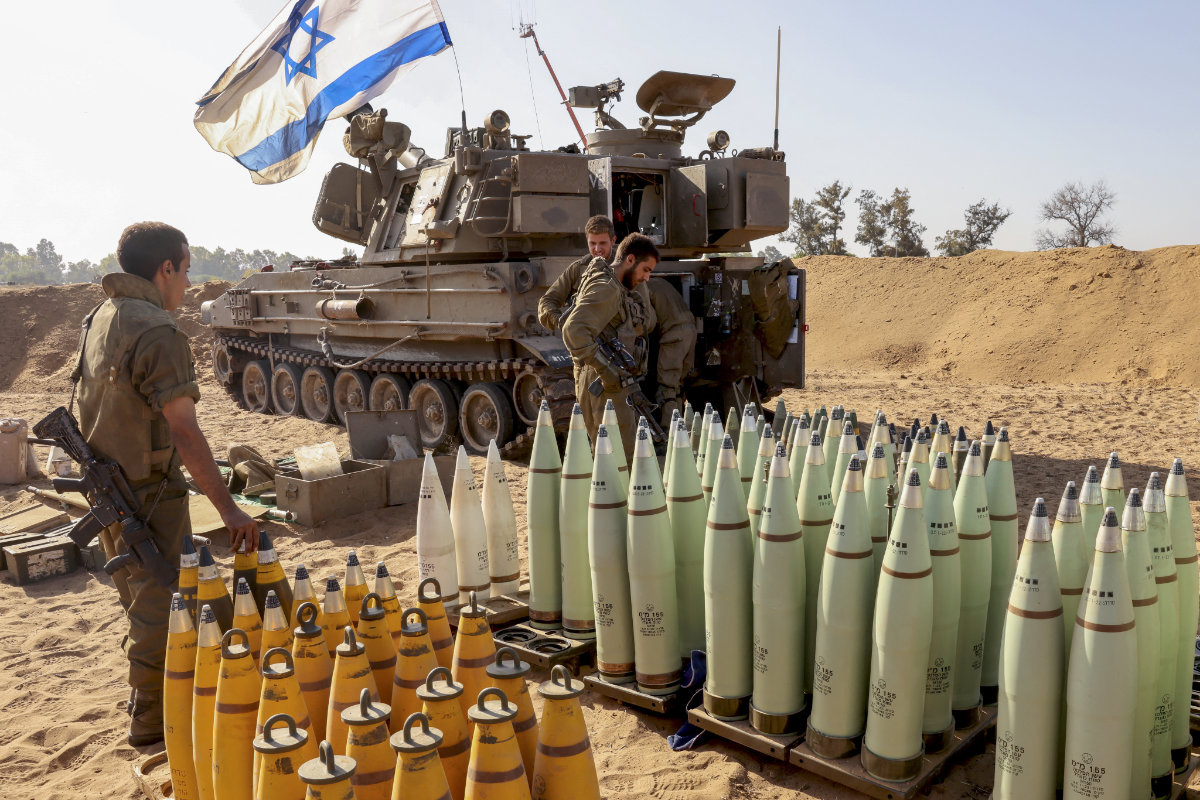
In this file photo, an Israeli artillery crew prepares shells at a position near the border with the Gaza Strip in southern Israel amid the ongoing battles between Israel and the Palestinian group Hamas in the Gaza Strip. (AFP)
The US has been Israel’s primary military backer in the ongoing conflict, with nearly $23 billion spent in support of its war on Gaza and operations against the Iran-backed Houthis in Yemen, according to a report by Brown University’s Watson Institute. When adjusted for inflation, total economic and military aid to Israel since its founding in 1946 rises to $310 billion.
Cohen, who is Jewish, highlighted the deeply entrenched relationship between the US and Israel.
“We have to stop arming Israel. And there needs to be a solution from the Palestinian leadership and the Israeli leadership. There has to be equality on both sides,” Cohen said, adding that “what we’re moving toward” is the opposite of what should be pursued and would eventually lead to the US being dragged into a wider, regional conflict.
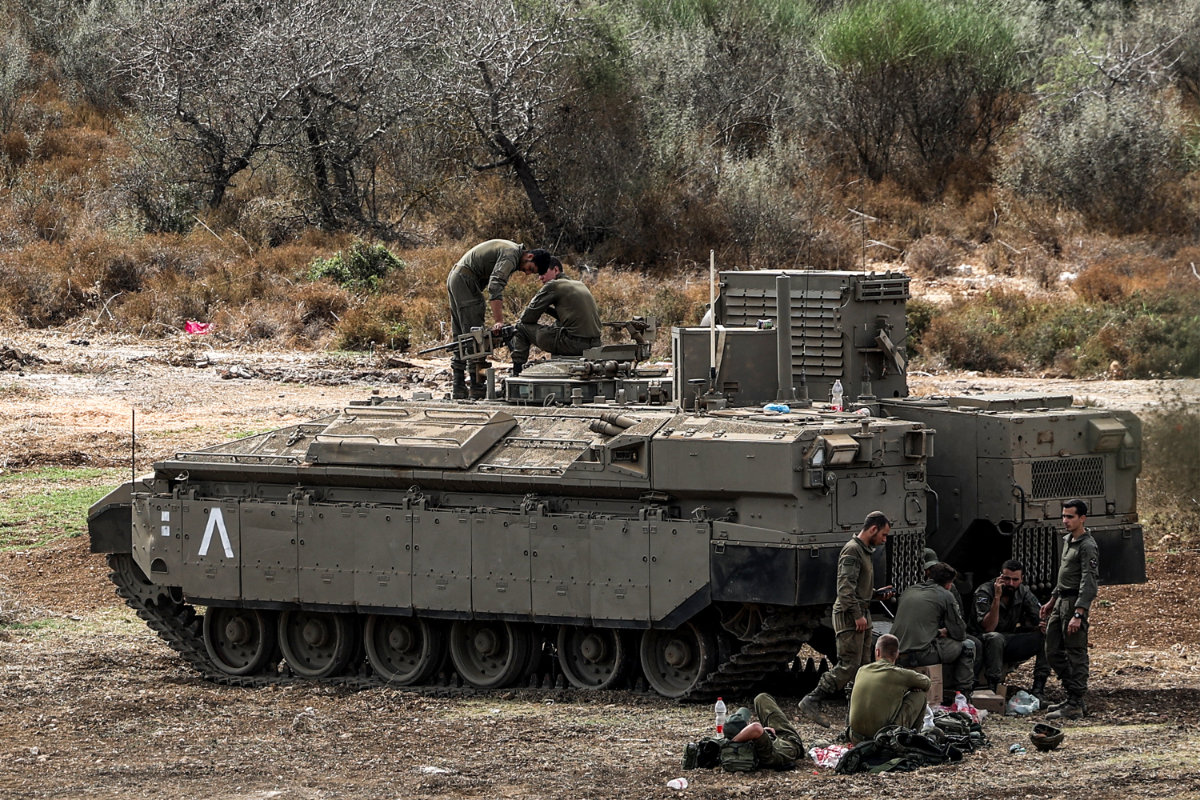
Israeli army soldiers sit by a deployed infantry-fighting vehicle (IFV) at a position along the border with Lebanon in northern Israel on October 1, 2024. (AFP)
On Oct. 7, people around the world held vigils and protests to mark first anniversary of a Hamas-led attack on Israel that triggered the war in Gaza. The Palestinian militant group and its allies killed some 1,200 people and took about 250 hostages to then Hamas-controlled Gaza, according to Israeli figures.
Nearly 42,000 Palestinians have been killed so far and most of the 2.3-million-strong population displaced by Israel’s retaliatory attacks, according to Gaza health authorities.
Cohen argued that Netanyahu, who has repeatedly claimed that Iran funded and coordinated the Hamas-led assault of Oct. 7 and Hezbollah’s rocket attacks, has long sought to push the US into a war with Iran.

“He’s very close to succeeding,” he said, noting that Iran is often portrayed as the root of all regional problems.
On Friday, the Biden administration announced fresh sanctions targeting Iran’s energy trade following an attack on Oct. 1 launched by the country against Israel, involving nearly 200 ballistic missiles. It was Iran’s second such attack on Israel this year, after it launched about 300 missiles and drones in April, both conducted in response to killings of high-level Iranian, Hamas and Hezbollah officials thought to have been carried out by Israel.
Cohen, the founding director of the Park Center for Independent Media at Ithaca College, argues that “bias” in the mainstream American media has heavily influenced coverage of the conflict, reinforcing US support for Israel regardless of its military actions, while marginalizing Palestinian voices.

Jeff Chen, retired associate professor of journalism at Ithaca College in New York. (Supplied)
“My main message as someone who worked in mainstream media and taught journalism at college is we have to, as journalists, understand that all lives matter. That Palestinian lives are as important as Israeli lives,” said Cohen, referencing the Israeli military’s actions in Gaza.
“You don’t get that from the US news media. You get it in a lot of other countries that all lives matter including Palestinians. In our country (the US), it’s just Israeli lives. Israeli suffering. Israeli deaths. Israeli hostages.
“There are far more Palestinian detainees who are in many ways ‘hostages.’ They aren’t charged. They’re tortured. They’re abused. There’s thousands and thousands of them, including children.”
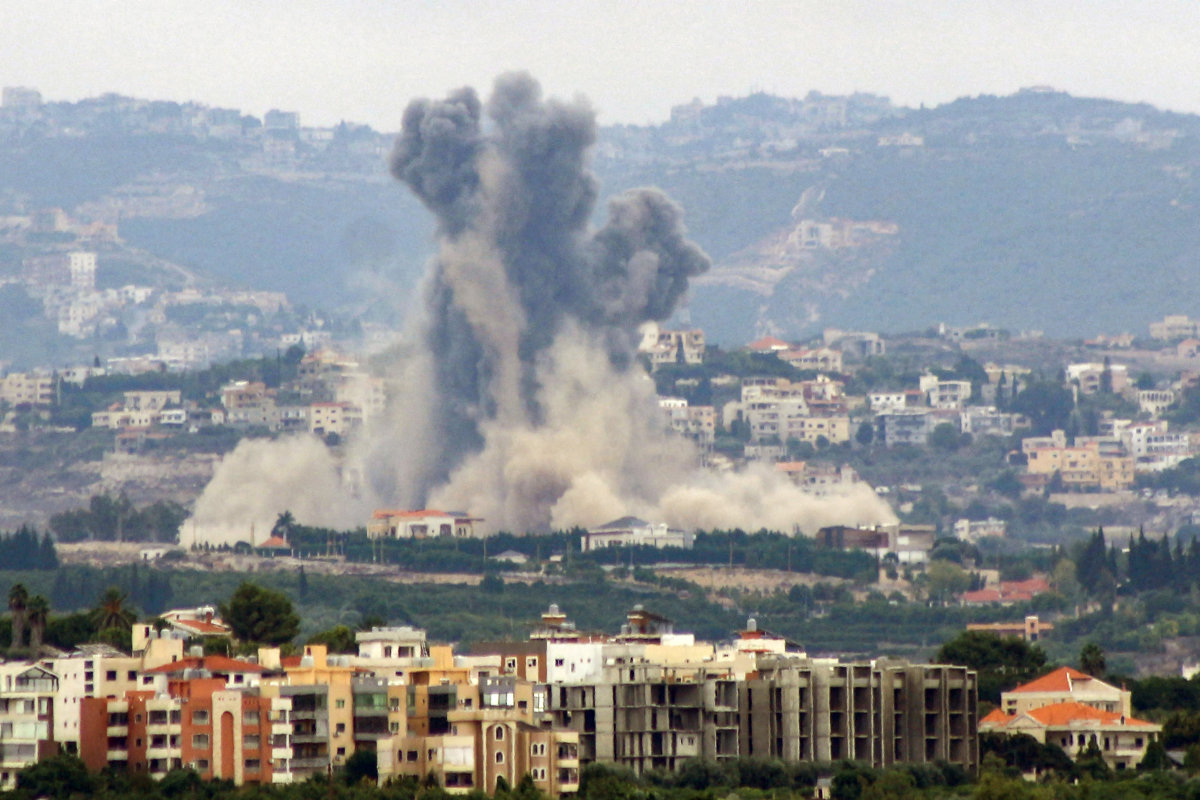
The Israeli army has said it has deployed a third troop grouping at division strength to participate in ongoing operations in southern Lebanon. (AFP)
Cohen argued that while violence is often attributed solely to groups like Hamas and Hezbollah, with Israeli victims predominantly highlighted by mainstream media, the history of terrorism in the Middle East traces back to Zionist extremists operating before the founding of the State of Israel.
“We have to understand, and any historian of Israel knows, there were Israeli terrorists, before the State of Israel, trying to bring a state into existence. They bombed the King David hotel. They killed civilians. They killed British civilians,” said Cohen, citing Jewish extremist groups from the 1940s led by future Israeli Prime Ministers Menachem Begin and Yitzhak Shamir, who opposed Palestinian statehood.
“If you’re an oppressed group and you’re a stateless group, there will be people within your community turning to violence. The only way to prevent that is peace and justice for all sides,” he said.
Hezbollah, which began firing rockets into Israeli cities from Lebanon on Oct. 8 last year in solidarity with Palestinian militant groups, and Hamas, which Israel is still fighting in Gaza, are two members of an alliance of Iran-funded militias that also operate in Iraq, Syria and Yemen.

The Houthis have targeted more than 80 merchant vessels with missiles and drones since the war in Gaza erupted last October. They seized one vessel and sank two in the campaign that also killed four sailors. Similarly, Iraqi militias vowed since October 7 to support Hamas’s war effort and have launched hundreds of rocket and drone attacks at Israeli cities and US military bases in the region.
Indiscriminate violence against civilians, as well as targeted attacks on media workers and medical professionals, have become a central issue in protests and discussions surrounding the conflict. These groups, often viewed as “intentional targets,” are seen as part of a broader strategy to force civilian displacement in both Gaza and Lebanon.
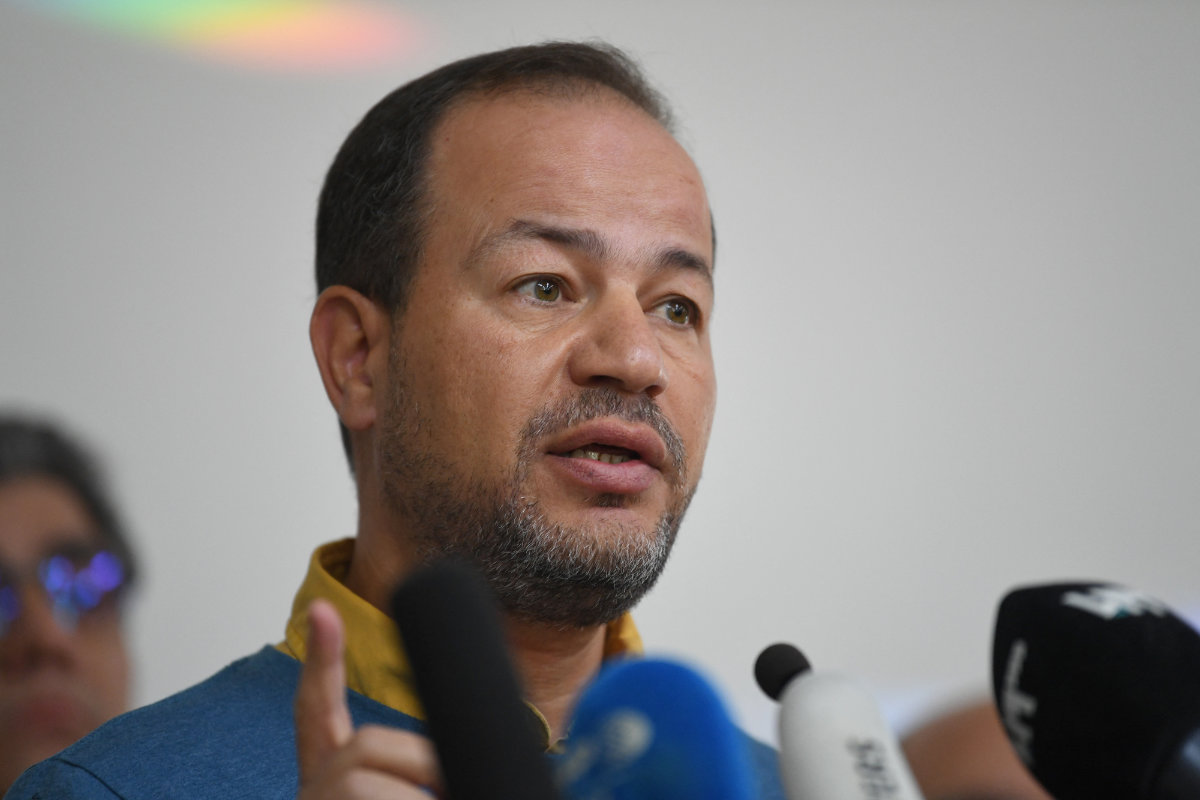
Dr. Zaher Sahloul, founder of the non-profit MedGlobal. (AFP)
In a separate segment of the “The Ray Hanania Radio Show,” Dr. Zaher Sahloul, founder of the non-profit MedGlobal, which provides medical support to civilians caught up in conflicts in the Middle East, South America, and Ukraine, remarked that the number of medical professionals killed and hospitals destroyed by Israeli bombings has reached “unprecedented levels.”
“There are new norms, if we can call it that way, that are now being created, especially in Gaza and now in Lebanon,” said Sahloul. “And we’ve seen that in Syria and a little bit in Ukraine, where you have hospitals, doctors and ambulances targeted intentionally to cause displacement and deprive communities of healthcare.”
According to UN statistics, more than 600 medical professionals, including doctors, nurses, and first responders, have been killed in Gaza, while 39 hospitals have been bombed and 97 medics killed in Lebanon over the last two weeks.
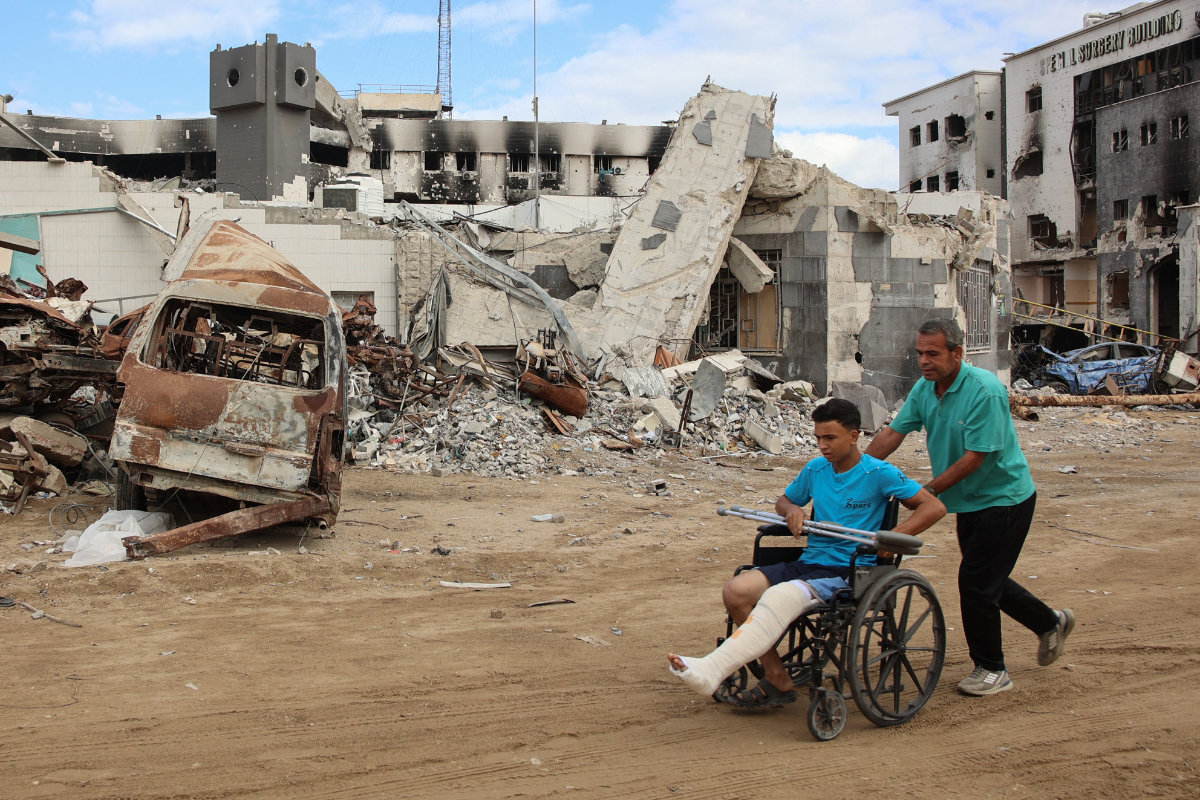
A man pushes an injured boy in a wheelchair past the destroyed al-Shifa hospital in Gaza City on September 17, 2024. Once the crown jewel of Gaza's proud medical community, the Palestinian territory's main Al-Shifa hospital has become a stark symbol of the utter devastation wrought by the Israel-Hamas war. (AFP)
“You didn’t see these numbers in previous conflicts,” Sahloul said. If Israel is not held to account for violations of the Geneva Conventions and international humanitarian law, he said such war crimes would only persist.
“It looks like it’s becoming the norm. There is no accountability. When there is no accountability, murderers tend to repeat the crime,” he said. “These attacks on healthcare in Gaza and Lebanon are not just collateral damage. They are intentional. And they are causing more harm and, of course, displacement of the population.”
Both Article 9 of the Geneva Convention and the statutes of the International Committee of the Red Cross classify the killing of medical personnel as a war crime. Sahloul argued that Israel’s current operations in Gaza, and similar tactics being employed in Lebanon, exceed what is justified, designed to hasten the displacement of civilians.
Israel has denied deliberately targeting medical facilities, but has accused both Hamas and Hezbollah of commandeering civilian infrastructure such as hospitals, schools and residential buildings to coordinate attacks and store weapons, using their occupants as human shields.
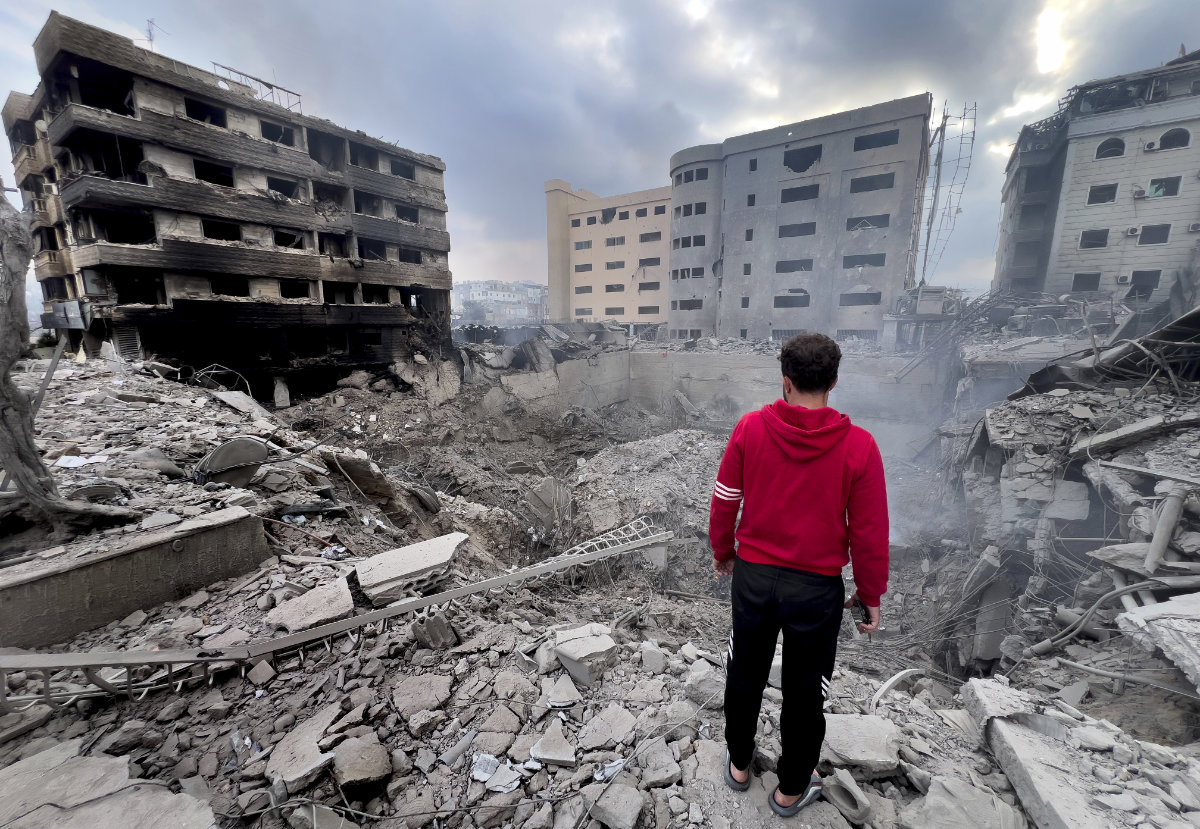
A man looks at destroyed buildings hit by Israeli airstrikes in Dahiyeh, Beirut, Lebanon, on Oct. 7, 2024. (AP)
The Israeli military has released photos and videos purporting to show these weapons depots as well as underground tunnels since it launched its military operations last year.
Sahloul, who has led numerous medical missions to conflict zones, pointed out the devastating long-term impact of losing key medical professionals.
“It is not normal. And imagine how long it will take to get a doctor, to become a physician. You know, it takes 30 years of education and then specialization. If you remove a surgeon or a head of department in Gaza or in Lebanon, it’s very difficult to replace them. It takes years and generations to replace these doctors.
“And if you bomb their hospitals and universities, that means this will set healthcare in Gaza and other places way, way back.”
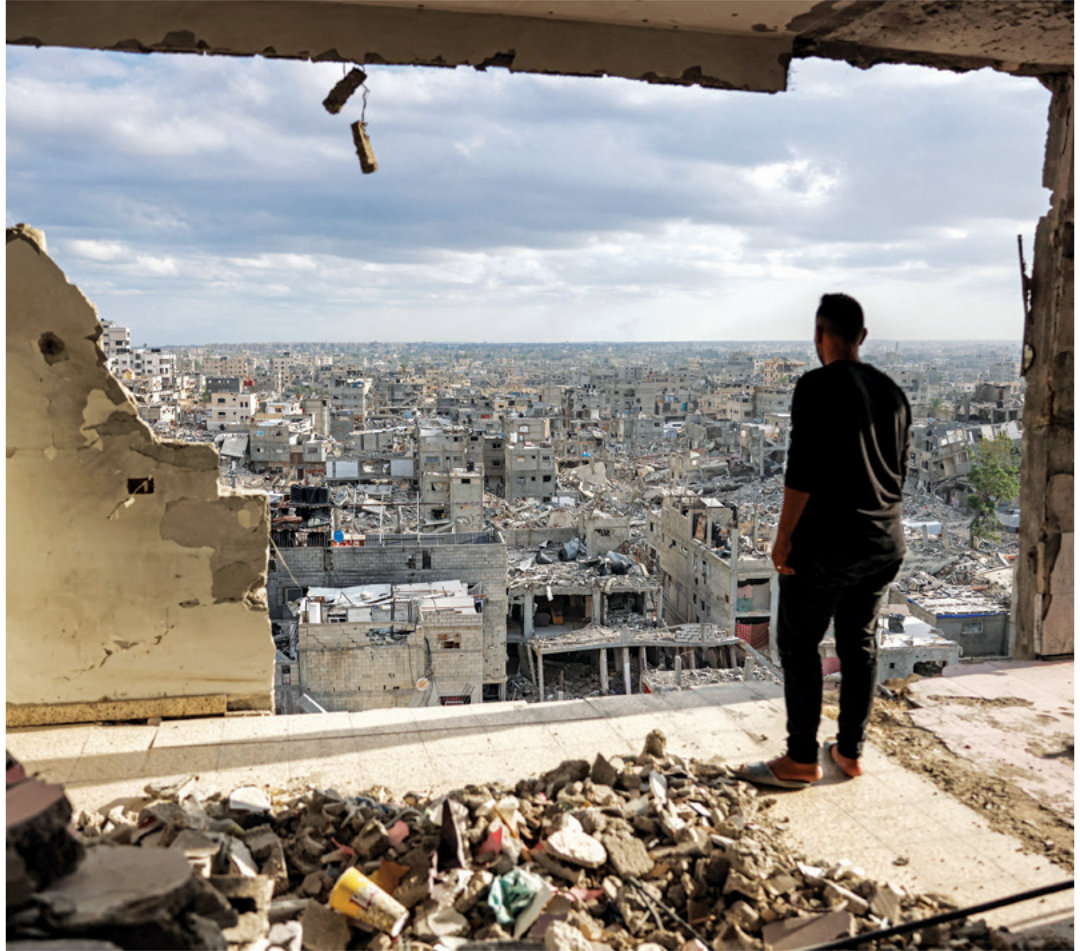
A man standing atop a heavily damaged building views other destroyed buildings in Khan Yunis in the southern Gaza Strip on October 7, 2024 on the first anniversary of the ongoing war in the Palestinian territory between Israel and Hamas. (AFP)
He also criticized the mainstream media for its lack of coverage on this aspect of the conflict.
“The media, of course, is not giving justice to this,” he said. “There were bits and pieces, especially at the beginning of the war in Gaza. But after that the media, for some reason, turned away from what’s going on in Gaza. It is inhumane. It is immoral. It’s unethical to ignore this, but for some reason, the media is not paying attention.”
“The Ray Hanania Radio Show” is broadcast every Thursday on the US Arab Radio Network on WNZK AM 690 Radio in Michigan Thursday at 5 PM EST, and again the following Monday at 5 PM. The show is sponsored by Arab News and is available by podcast at ArabNews.com.rayradioshow or at Facebook.com/ArabNews.




























